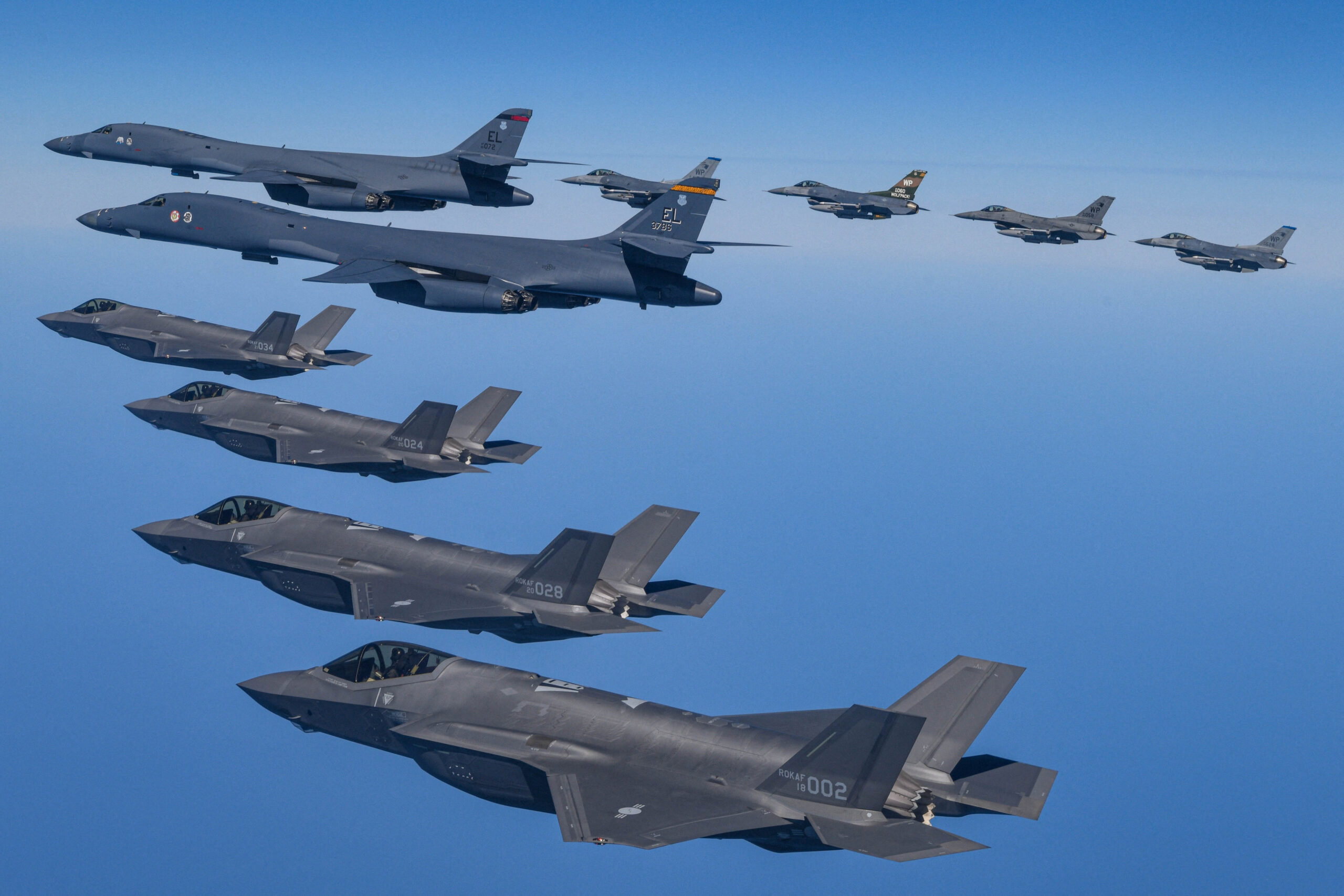Already a subscriber? Make sure to log into your account before viewing this content. You can access your account by hitting the “login” button on the top right corner. Still unable to see the content after signing in? Make sure your card on file is up-to-date.
The United States has officially agreed to sell F-35 fighter jets to Saudi Arabia, leading to concerns from Israel.
Some shit you should know before you dig in: If you’re unaware, the United States has a longstanding policy (called the Qualitative Military Edge (QME)), which ensures that Israel maintains a decisive military advantage over any regional adversaries in the Middle East. Under this policy, the US has strictly limited the sale of its most advanced weaponry, including the F-35 stealth fighter jet, to other countries in the region. Israel remains the only Middle Eastern nation to operate the F-35, with access to uniquely customized versions that include advanced weapons systems, electronic warfare capabilities, and integration with its own domestic technologies. Although countries like Turkey and Saudi Arabia have expressed strong interest in purchasing the aircraft for years, their requests were either blocked or indefinitely delayed (largely due to concerns that such sales would compromise Israel’s military edge). Turkey, once a partner in the F-35 development program, was expelled after acquiring Russia’s S-400 missile system, while Saudi Arabia’s ambitions have repeatedly stalled due to Israeli objections, geopolitical sensitivities, and security concerns, including fears of technology transfer to rival powers like China.

What’s going on now: In a notable development, the United States has agreed to move forward with the sale of F-35 fighter jets to Saudi Arabia. President Trump made the announcement just before Saudi Crown Prince Mohammed bin Salman’s visit to the White House, saying, “We’ll be selling F-35s. They want to buy them. They’ve been a great ally.” The deal reportedly includes up to 48 F-35 aircraft and is part of a broader arms and energy package between the two countries, which also includes a joint civil nuclear cooperation agreement and the sale of nearly 300 tanks. The F-35s are estimated to cost between $80 to $110 million per jet, putting the total value of the sale in the multi-billion-dollar range.
Although Saudi officials did not publicly link the deal to normalization with Israel, the agreement is widely seen as part of Trump’s broader effort to bring Saudi Arabia into the fold of the Abraham Accords, despite no formal commitment from the Saudis on diplomatic ties with the Jewish state. Notably, the White House opted not to make F-35 access conditional on normalization, which frustrated some Israeli officials who had hoped to use that as leverage.
Israel’s response to the sale has been quick and negative. Former IDF Deputy Chief Yair Golan said the sale could “open an arms race in the Middle East,” while Israel’s National Security Minister Itamar Ben-Gvir expressed anger, adding that Israel “must preserve our superiority.”
According to US defense officials, the F-35s sold to Saudi Arabia will be delivered with reduced capabilities, lacking key features such as next-generation AIM-260 missiles, advanced electronic warfare systems, and certain software enhancements unique to Israel’s fleet. Additionally, Saudi Arabia’s order will be limited to two squadrons.







